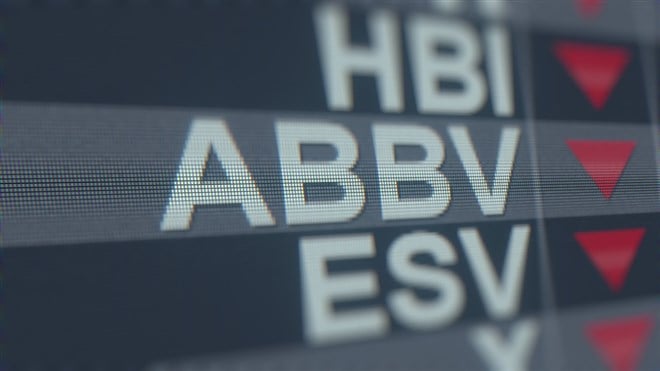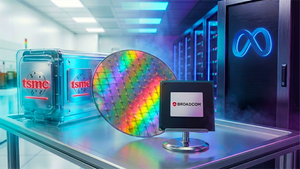Financial News
AbbVie Stock: Dividend King ABBV Overview

If you have questions about AbbVie stock, we have answers. The bottom line is that AbbVie is one of the world’s leading pharmaceutical companies and comes with one attractive dividend.
Not only is the dividend a high yield, but it is also a safe, high yield with a robust outlook for distribution increases. The question with AbbVie isn’t about whether it should be bought but how it will fit into your portfolio and how long to hold it.
ABBV Stock Overview
AbbVie (NYSE: ABBV) is a U.S.-based pharmaceutical company with annual revenue of over $55 billion and a market cap of five times that amount. It is the U.S.'s fourth-largest pharmaceutical company by revenue and market cap and is a member of the S&P 500.
AbbVie is a dividend payer with a high yield relative to peers and the broad market. When including the dividend payment history of its parent, Abbott Laboratories (NYSE: ABT), it is a Dividend Aristocrat and Dividend King.
AbbVie Inc. Competitors
AbbVie's competitors include but are not limited to the pantheon of global pharmaceutical companies, including Johnson & Johnson (NYSE: JNJ), AstraZeneca (NYSE: AZN) and Pfizer (NYSE: PFE).
AbbVie Price History and Performance
AbbVie stock prices have performed strongly since its 2013 IPO. The stock is up more than 390% and the long-term outlook remains healthy. The market is susceptible to broader market swings but comes with a low beta. The beta of 0.60 means the stock is only 0.6 times as volatile as the S&P 500, which is 40% less volatile. If you want to add yield and safety to your portfolio, keep this in mind.
About AbbVie Inc.
AbbVie Inc. is a U.S.-based multinational pharmaceutical company. It came to life in 2013 and spun off from Abbott Laboratories. AbbVie began its life as Abbott’s pharmaceutical research segment and spun off to capture the value inherent in the segment.
The blockbuster drug Humira drove sales, but the full value of the business was held back by inclusion with Abbott’s more-diversified model. Since then, AbbVie has established itself as a leader in the pharmaceutical industry and has made great headway in treating rheumatoid arthritis and Crohn’s disease.
AbbVie Inc. Fundamentals
AbbVie is a fundamentally sound business focused on researching and developing pharmaceutical compounds. The pharmaceutical industry is worth more than $1.42 trillion worldwide and growing. AbbVie has funded some of its research and growth with debt, but the balance sheet is well-managed.
The 3.27 leverage ratio is low relative to the broad market and is considered in a safe-bordering-on-fortress-quality range. Cash and free cash flow are more than sufficient to sustain operations while paying dividends.
Earnings and Revenue
AbbVie makes money via sales of pharmaceuticals worldwide. Humira accounted for about 35% of revenue in 2022. The risk for investors is that Humira sales have declined due to increased competition, which has put some pressure on the outlook for future earnings.
The caveat to this is that new treatments Rinvoq and Skyrizi are on track to eclipse Humira sales, and the pipeline includes many other promising compounds.
The company’s free cash flow ratio ran near 40% of revenue in late fiscal 2022, a substantially high figure. The cash flow was used to fuel the high-yielding dividend, share repurchases, debt reduction and research into new business opportunities.
Dividends
AbbVie’s official dividend history dates back to only 2013 because that is the year it spun off from Abbott Laboratories. Abbott Laboratories is not only a well-known dividend payer, dividend growth stock, Dividend Aristocrat and Dividend King but paid its investors a dividend in the form of AbbVie stock.
In this light, the company is as good as a Dividend King because of its management style and outlook for distribution reliability.
Why invest in Dividend Aristocrats? Because they are reliable.
So, how does ABBV's dividend stack up in the reliability category? The stock paid nearly 4% annual yield in early 2023 with the metrics, revenue and cash flow to continue raising its dividend, as it has been doing for 10 years.
The payout ratio was a cool 42% as well but expected to rise in the following year due to the diminishing tailwind from COVID-19. Even so, the outlook for sustainability was healthy and backed up by a modestly strong balance sheet. The company carries some debt but is well-managed and has been trending lower.
Valuation
ABBV stock is most commonly valued based on its earnings. The company was trading at roughly 13 times its earnings estimates in 2023, considered low for an S&P 500 company. Regarding its size, AbbVie has a market capitalization of more than $250 billion, making it a mega-cap player in a trillion-dollar industry.
Price-to-Earnings (P/E) Ratio vs. Peers and Industry
AbbVie was offering a discount to investors at the start of 2023. The stock was trading at only 13 times its forward earnings outlook compared to a range of 14 times to 19 times for others in the pharmaceutical industry. This range was in line with the broad market, but the dividend yield from AbbVie and its competitors was much more favorable. Understanding valuation is key to how to pick good dividend stocks.
Analyst Price Targets
The analysts' consensus rating for AbbVie slipped at the end of 2022 and began 2023 at a "strong hold" versus the "moderate buy" it had been pegged to. Ironically, the consensus price target for ABBV stock price had been firming and was supportive of the price action. This situation caused some volatility in the price action at the start of 2023, but a major correction was not expected.
Future Growth for AbbVie Inc.
AbbVie’s growth trajectory got skewed in the wake of the pandemic and lowered the nearer-term outlook. The surge in revenue and earnings brought about by COVID-19 testing, vaccines, supplies and mitigating equipment was unsustainable, but the long-term outlook is still bright. The company has several blockbusters and many treatments in its pipeline.
Two treatments that are currently available and on track for approval for multiple other conditions are Skyrizi and Rinvoq. Skyrizi is currently available to treat psoriasis and Crohn’s disease, while Rinvoq is available for treating rheumatoid arthritis and a few other ailments.
Both are expected to eclipse Humira in sales over time. The pipeline of new compounds, as of early 2023, includes five on the verge of FDA approval and dozens more on track to reach phase one trials.
Dividend Capture Strategy for AbbVie Inc.
The dividend capture strategy aims to earn or capture AbbVie’s dividend while owning the stock for the least amount of time possible. You may think that you must own the stock for a certain length of time. That is true, but that length is as short as overnight, which makes this a potentially profitable strategy.
The strategy revolves around two important dates announced along with the dividend declaration each quarter, important dates for those who want to learn more about dividend yield.
The dividend declaration is the company’s official announcement via SEC filing and press release that it will pay an upcoming dividend. The dividend declaration includes the amount of the dividend, the dividend on a per-year basis, the date of record, the ex-dividend date and the date of distribution. The two key dates for the dividend capture strategy are the date of record and the ex-dividend date.
- Date of record: The date of record is an important date for every dividend, not just AbbVie’s. The date of record is the day the company’s agent records the names of shareholders eligible for the upcoming dividend payment. The only requirement for recording is to own the stock on the day of record at the close of the business day.
- Ex-dividend date: The ex-dividend date is the first day the stock trades, and new owners will not receive the upcoming dividend; it is the day after the date of record. In theory, a trader could buy AbbVie stock at 3:59 p.m. Eastern Standard Time (EST) on the date of record and then sell it at 9:01 a.m. EST the next day and receive the dividend payment. The risk is that stock prices tend to fall on the ex-dividend day because the value of the dividend is no longer present, not until the next declaration, anyway.
- Distribution date: The distribution date is the day the dividend is paid. The dividend is paid directly to shareholder accounts and is available for near-immediate use. It doesn’t matter if you own the stock on the distribution day as long as you were an owner on the day of record.
A nuance that investors should be aware of is the difference between an owner of record and a beneficial owner. Owners of record have registered ownership with the company’s agent and are eligible for dividend reinvestment plans and other shareholder-specific privileges such as voting. Beneficial owners are owners that hold shares in brokerage accounts.
The brokerage is usually the owner of record in this situation, but dividends are always paid to the beneficial owner. In this situation, you may or not be eligible to vote shares and receive other shareholder benefits.
AbbVie is as Good as a Dividend King
AbbVie is a solid player in the global pharmaceutical industry and a dividend growth stock. The best part of this story is that AbbVie has its roots in Abbott Laboratories (one of the best dividend stocks of all time) and is managed with the same foresight. In this regard, it is as good as a Dividend King, which means it is a blue-chip quality company that you can count on to deliver dividend payment and annual dividend increases.
More News
View More




Recent Quotes
View MoreQuotes delayed at least 20 minutes.
By accessing this page, you agree to the Privacy Policy and Terms Of Service.



